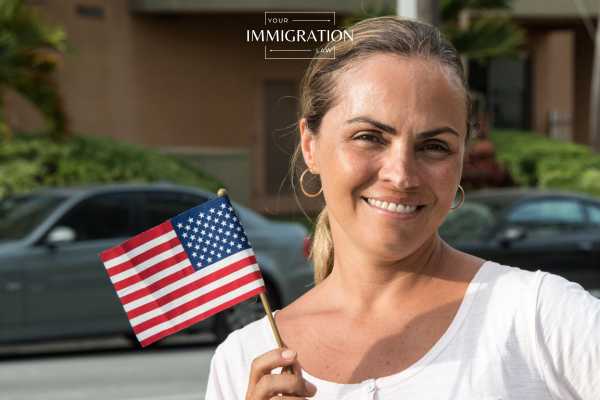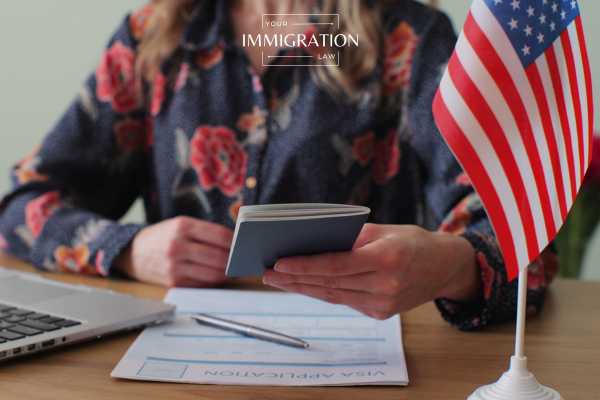If you're a victim of abuse and need help staying in the United States, a VAWA immigration lawyer can guide you through the process. VAWA, or the Violence Against Women Act, allows victims of domestic abuse to apply for protection and permanent residency without relying on their abuser. A lawyer can help you understand your rights and support you in applying for the legal status you deserve. Call Your Immigration Law at 313-631-8080 to get your case started.
Overview of the Violence Against Women Act (VAWA)
The Violence Against Women Act (VAWA) is a law that helps protect people who have experienced abuse, especially in cases where their abuser is a U.S. citizen or permanent resident. VAWA has had a big impact on immigration law because it allows survivors of abuse to apply for immigration status relief without needing their abuser’s help or permission. This is really important because it gives people a way to stay safe and build a new life in the U.S.
To be eligible for the VAWA immigrant visa, you need to show that you had an abusive spouse, parent, or child who were U.S. citizens or permanent residents. Immigration attorneys can guide you through the process, making sure you meet the criteria and have the best chance of being approved.
What Are the Eligibility Requirements for VAWA Relief?
- Victim of Domestic Violence: To be eligible for VAWA, there are a few important things you need to meet. First, you must be a victim of domestic violence, which means you’ve experienced battery or extreme cruelty from a U.S. citizen or lawful permanent resident who is either your spouse, parent, or child. This law is designed to protect you from harm and help you stay safe.
- Relationship to the Abuser: Next, your relationship with the abuser is really important. You need to be, or have been, married to a U.S. citizen or permanent resident, or you need to be their child. This connection is what allows you to apply for VAWA.
- Good Moral Character: Another key part of the process is showing that you have good moral character. This means that during the application, you must demonstrate that you’re an honest and responsible person, which helps support your case.
- Residency: Lastly, you’ll need to prove that you’ve been living with the abuser or had an abusive relationship with them. This helps to show the impact of the abuse and why you need protection under VAWA. Meeting these criteria is important for getting the help you need to move forward with your life.

Eligibility for Permanent Residence Under VAWA
To be eligible for permanent residence under VAWA, you need to show that you’ve been a victim of abuse by a U.S. citizen or lawful permanent resident who is your spouse, parent, or child. You also need to meet some basic requirements, like proving you lived with the abuser and showing that you have good moral character. If you qualify, VAWA allows you to apply for a green card on your own, without needing the abuser's help, so you can stay in the U.S. and start a new, safer life.
What Does VAWA Relief Provide?
VAWA relief provides protection and a way for victims of abuse to resident status in the U.S. Specific benefits include:
- Legal Status: VAWA relief helps victims of abuse by allowing them to apply for legal status, like a green card, without needing the abuser's help. This means they can stay in the U.S. legally, live safely, and work toward building a new life away from the abuse.
- Work Authorization: VAWA relief allows victims of abuse to apply for work authorization, meaning they can legally work in the U.S. while their application for legal status is being processed. This helps them support themselves financially and gain independence from their abuser.
- Safety and Protection: VAWA relief provides safety and protection by allowing victims of abuse to stay in the U.S. legally, without relying on their abuser. It helps them escape dangerous situations, ensuring they can live independently and securely while building a new life away from the abuse.
The VAWA Application Process
The VAWA application process allows certain abused individuals to apply for immigration relief without the involvement of their abuser. This process requires submitting detailed evidence to support your claim and can be complex, but it's a critical step toward safety and independence.
Filing Form I-360
The VAWA application process begins with filing Form I-360, which is a way for VAWA self-petitioners—those who have been abused by a U.S. citizen or lawful permanent resident—to ask the U.S. government for protection. This form explains your situation and why you need help. You’ll need to gather important documents, like proof of your relationship with the abuser and evidence of the abuse, to support your case. Once you submit the form and the documents, the government will review everything to decide if you qualify for VAWA relief. This is an important step for self-petitioners to gain safety and start a new chapter in their lives.
Supporting Documentation
When filing for VAWA, it's important to include supporting documentation that helps prove your case. This includes:
- Proof of Abuse: When you apply for VAWA, you’ll need to include documentation of abuse like medical records, police reports, and written statements from people who know about the abuse. This helps show what you’ve been through and why you need protection. The criminal records of the abusive parent, spouse, or child will be beneficial in the filing process as well.
- Proof of Relationship: To prove your relationship with the abuser when applying for VAWA, you’ll need to include documents like a marriage certificate if you were married, or a divorce decree if you’ve already separated. If the abuser is your parent, you’ll need to provide evidence of that parental relationship, like a birth certificate or adoption papers.
- Proof of Good Moral Character: To show you have good moral character when applying for VAWA, you’ll need to include personal statements where you share your story and how you’ve handled tough situations. You can also add affidavits, which are written letters from people who know you well and can vouch for your honesty and integrity, along with other documents that reflect your positive behavior and values.
- Proof of Residence: To prove you lived with the abuser, you can include things like a lease or bills that show both your names at the same address or photos of you together in the home. You can also provide any documents that show you had a real relationship with the abuser, like shared bank statements or joint insurance policies.
Application Review
When you apply for VAWA, the U.S. government will carefully review all the information and evidence you’ve provided to decide if you qualify for protection. During this review process, they might ask you for more details or additional evidence to support your case. Sometimes, they might even schedule an interview with you to ask questions about your situation and make sure everything checks out. This can be a little nerve-wracking, but it’s all part of making sure your application is as strong as possible.
Having a VAWA lawyer by your side can make a big difference during this process. Your lawyer can help you prepare for any interviews, making sure you know what to expect and how to answer questions confidently. They’ll also make sure all the evidence you provide is organized and presented correctly, so your case has the best chance of being approved. With their help, you can feel more at ease knowing that everything is being handled properly and have a quicker change in citizenship status.
The Role of VAWA Immigration Lawyers
Experienced immigration lawyers play a really important role in helping survivors of abuse through the immigration process. They have lots of experience with VAWA-specific cases, which means they really understand the unique challenges that come with these situations. These lawyers aren’t just legal experts; they’re also advocates who stand up for survivors and offer the support needed to get through a tough time.

They help navigate the complex legal processes involved in applying for VAWA, making sure all the forms are filled out correctly and all the evidence is properly presented. By having a VAWA lawyer on your side, you get the guidance, support, and advocacy you need to move forward and build a safer, better future.
Beyond VAWA: Additional Immigration Options for Survivors
In addition to VAWA, there are other immigration options for survivors of abuse that can help them stay safe and build a new life in the U.S. One of these options is the U Visa, which is available for victims of certain crimes, like domestic violence or assault. If you’ve helped law enforcement by reporting the crime or assisting in the investigation, you might be eligible for a U Visa, which can also lead to a green card.
Another option is the T Visa, which is specifically for survivors of human trafficking. If you’ve been forced into labor or commercial sex acts and have escaped or are seeking help, the T Visa can offer you protection and a path to legal status in the U.S. It’s designed to help people who have been through really difficult situations.
For some survivors, applying for asylum might be an option, especially if they are fleeing persecution or danger in their home country. Asylum offers protection in the U.S. for people who can’t return to their home country because they fear for their safety. There are also other types of humanitarian relief that might be available depending on your situation. A skilled immigration lawyer can help you explore these options and figure out the best path forward.
FAQs
- Who is eligible for VAWA immigration relief? Survivors of abuse who are spouses, children, or parents of U.S. citizens or lawful permanent residents are eligible for VAWA immigration relief.
- How long does the VAWA self-petition process take? The VAWA self-petition process typically takes about 12 to 18 months, but it can vary depending on the case.
- Can men apply for VAWA immigration benefits? Yes, men can apply for VAWA immigration benefits if they are survivors of abuse.
- What happens if my VAWA petition is denied? If your VAWA petition is denied, you may appeal the immigration decision or explore other options with the help of a lawyer.
- Do I need a lawyer to file a VAWA self-petition? While you don't need a lawyer to file a VAWA self-petition, having one can greatly increase your chances of success and make the process smoother.
Need Protection Through VAWA? Contact an Immigration Lawyer Today
VAWA immigration is a really important way to help people who have been abused, giving them a chance to stay in the U.S. without needing their abuser’s help. While the process is designed to protect you, it can be a bit tricky, with lots of forms, documents, and steps to follow. It might seem like a lot to handle, but you don’t have to go through it alone.
That’s where a VAWA immigration lawyer comes in. They can guide you through everything, making sure your application is strong, your evidence is clear, and any problems are taken care of. With their support, you can feel more confident and ready to move forward, knowing you’re taking the right steps to create a better future in the U.S. Let Your Immigration Law guide you through the VAWA process with care and experience, helping you secure a safer future in the U.S.